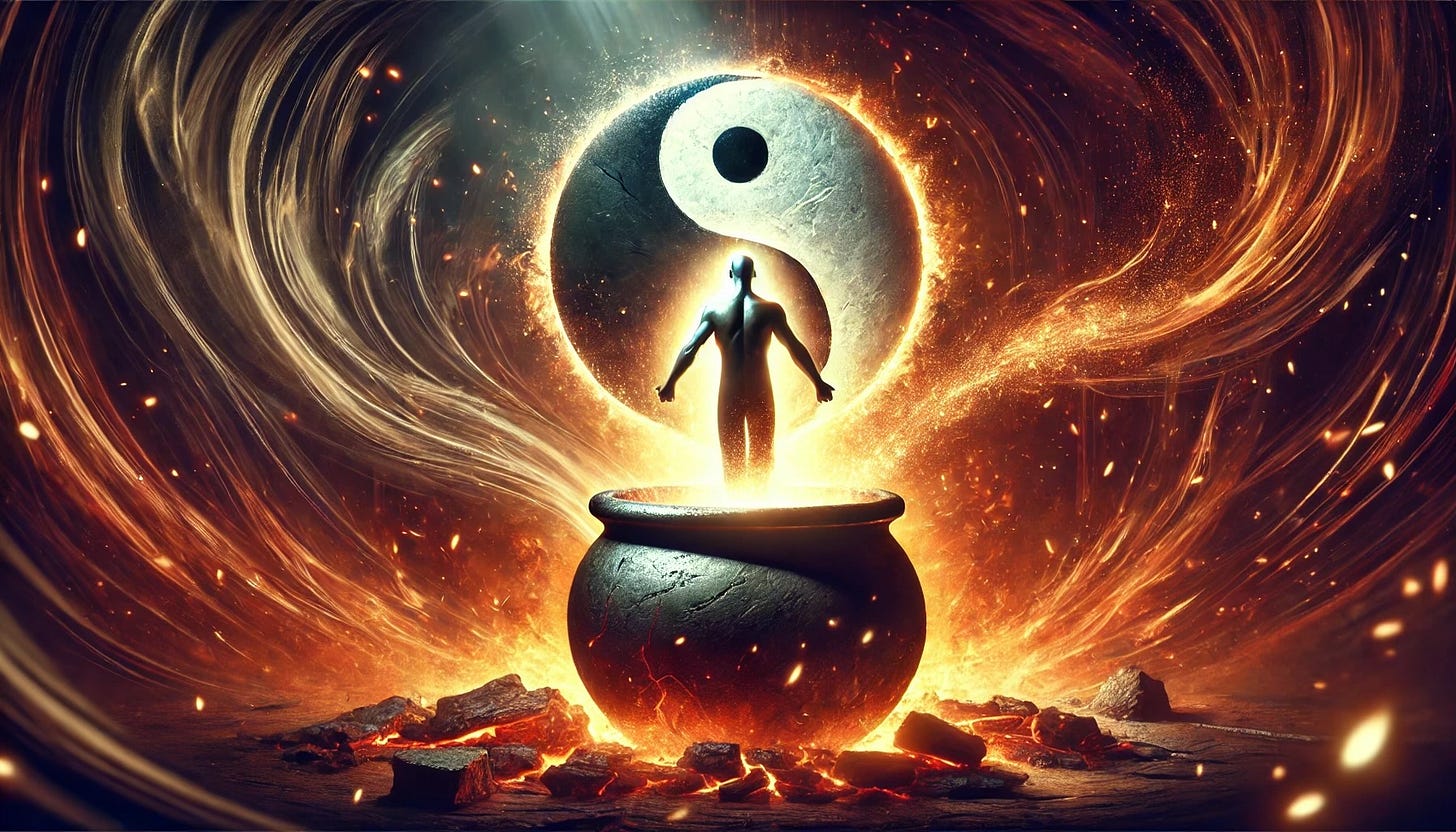It’s said that the tallest tree catches the most wind. And lately, I’ve found myself wondering what it means to be that tree.
To speak the truth and watch the arrows fly can feel deeply personal—after all, someone went out of their way to draw their bow.
But the paradox, as I’ve come to understand it through Taoist philosophy, is that an attack is often less about you and more about what you represent. The Tao teaches us that those who react with hostility do so because, in some way, they perceive you as significant enough to threaten their equilibrium.
Why Bother Tossing Stones at Pebbles?
If what you say is irrelevant or unimportant, it will likely pass unnoticed, dissolving into the vast sea of noise that makes up modern discourse. Yet, the very act of being targeted reveals that you have struck a chord, however discordant.
In a way, being attacked is a backhanded acknowledgment of your influence. A Taoist might say, “The sage is indifferent to praise and blame,” but let’s be real—when criticism lands on your doorstep, it can feel anything but indifferent.
The Tao reminds us not to cling to the opinions of others, whether they are flattering or cutting. These opinions are fleeting and, like wind against a mountain, cannot erode the essence of who you are. But how do you internalize this wisdom when the arrows feel aimed at your core?
A Jungian Lens: Shadow and Projection
If the acclaimed Carl Jung were here, he might suggest that those who attack are grappling with their shadow—the parts of themselves they cannot accept. Your authenticity, your willingness to be different, becomes a mirror reflecting the disowned aspects of their psyche. Jungian psychology teaches us that projection is often at play in such scenarios. The critic is, in a way, battling themselves, not you.
But this insight requires self-reflection too. If I’m being attacked, what am I projecting that evokes such a strong reaction? Am I embodying qualities that others envy, fear, or fail to reconcile within themselves?
A Jungian perspective invites us to explore the interplay between our individuality and the collective psyche, reminding us that every confrontation is an opportunity for deeper understanding.
Embracing What Makes You Different
In my journey, I’ve come to see attacks as a crucible for self-acceptance. They force us to ask: “Am I willing to stand by what makes me different?” Taoism celebrates the idea of Ziran—naturalness, or being true to oneself. The path of least resistance is not about blending in but about flowing authentically with the current of your life, even when others try to dam the river.
When you’re different, you challenge the status quo, and people who cling to conformity will inevitably feel unsettled. But the Tao teaches us that difference is not something to be feared; it’s the essence of life’s diversity. Like the Tao Te Ching says, “The ten thousand things arise from differences.”
Avoiding Adverse Influence
To avoid being unduly influenced by attacks, Taoism offers a powerful lesson: wu wei, or effortless action. This doesn’t mean doing nothing—it means responding with clarity and alignment to your core values rather than reacting impulsively.
In other words, when the arrows come, pause. Breathe. Ask yourself: “Does this attack alter the truth of who I am?” Often, the answer is no.
Rather than retaliating, consider the Taoist approach of deflection, much like a reed that bends with the wind. Let their hostility flow past you, refusing to engage in their drama. In doing so, you preserve your energy and protect your peace.
As Lao Tzu teaches, “Yield and overcome; bend and be straight.”
In the end, being attacked is a sign that you’ve disrupted someone’s comfort zone—an indicator that you are stepping into your significance. From a Taoist perspective, it’s less about the arrows and more about your response. Do you hold fast to your authenticity, or do you let external noise destabilize your inner calm?
To me, the ultimate act of courage is not in silencing critics but in standing firm in the face of them. Let the arrows fly; their trajectory reveals not your weakness but the potency of your presence.
Join us today as a paid member supporter. Or feel free to tip me some coffeehouse love here if you feel so inclined.
Your contributions are appreciated!
Every bit counts as I strive to deliver high quality feature articles into your inbox on a daily basis. Never any paywalls, just my raw thoughts which are open to everyone on what it means to be human.
Much Love,
Diamond Michael Scott — aka The Chocolate Taoist






In other words, when the arrows come, pause. Breathe. Ask yourself: “Does this attack alter the truth of who I am?” Often, the answer is no.
Really liked this. Thank you!
I spent time working in the field of conflict management in workplaces and community gatherings. I would add that often we will never know why we are the target of someone's seeming ill will. It might have nothing to do with us or the issues at hand except we were in the way of them having a bad day - or a bad life.
Just as cops and doctors will use the acronym DOA - Dead on Arrival - I learned some people are AOA - Angry on Arrival - and often they don't have a conscious reason. So it doesn't help me to harbor ill will against those who say unacceptable things. Does not excuse their behavior, but it's useful not to hold on to bad feelings, or use their words as a reason to lash out, escalating the conflict. That's different from setting up a healthy limit or boundary.
Humans are not a rational species, even those who pride themselves on their rationality. I have had some success dealing with those angry people with the emotional equivalent of a cookie. Often, if their behavior is chronic, they have isolated themselves from others and feel, ironically, that the world is against them. Even as I set a limit, a small act of kindness can have a very positive effect.
On the other hand, my partner in crime taught me to pause and consider if there were, hidden in the person's negative emotions, maybe a tiny grain of truth to acknowledge. Sometimes, our opponents will tell us things we need to hear that our friends won't. Wrapped inside an irrational tirade might be some idea we might consider.
And for those who think I am naive about prejudice and bigotry and conscious hatred, I am from an immigrant Jewish family and know a little bit about verbal and physical attacks from people who don't like immigrants and don't like Jews. Or don't like strangers. Or just don't like people.
thank you for this advice. Too often I allow attacks to derail me, my mind focuses on them and I have intrusive thoughts about them. I will try to be more like the river and let them flow past.
I want to share this from my Warrior of the Light reading last night because it seems relevant:
"He accepts that his opponents are there to test his valor, his persistence, and his ability to make decisions. They force him to fight for his dreams."
I posted a photo of the page in my Notes today :)